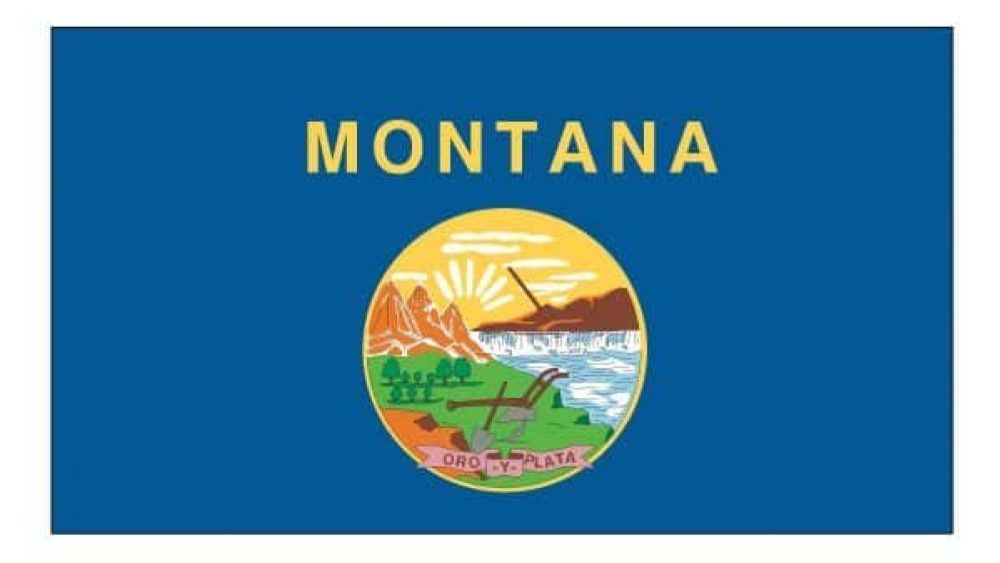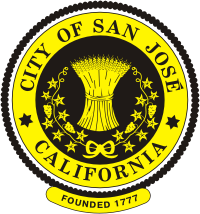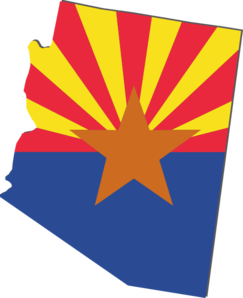
Montana State Flag
The U.S. Court of Appeals for the 9th Circuit has ruled against Montana, holding the state’s laws regarding political committees are unconstitutionally vague. The court took umbrage with the state’s rule which governs whether political spending needs to be reported. […]
The U.S. Court of Appeals for the 9th Circuit has ruled against Montana, holding the state’s laws regarding political committees are unconstitutionally vague.
The court took umbrage with the state’s rule which governs whether political spending needs to be reported.
In Montana, any group of two or more people who spend $250 or more in an election cycle to support or oppose political candidates must register and report as a political committee.
Volunteer activities do not count towards the $250 threshold, but the court held Montana’s administrative scheme did not give plaintiffs fair notice that their activities fell outside the definition of volunteer services.
The decision opens the pathway to challenge the state’s definition of a political committee.
September 3, 2020 •
Fort Collins City Council Approves New Campaign Finance Amendments

Fort Collins City Council approved several campaign finance changes on September 1 that will take effect in time for the April 2021 city election. The amendments include limits to how much individuals can contribute to limited liability corporations and political […]
Fort Collins City Council approved several campaign finance changes on September 1 that will take effect in time for the April 2021 city election.
The amendments include limits to how much individuals can contribute to limited liability corporations and political committees to support or oppose city races.
City Council voted 5-2 on the political committee and LLC contribution changes. This included votes in opposition from Mayor Wade Troxell and council member Ken Summers. In addition, council unanimously approved several other election code changes. The changes will apply to municipal elections for council seats, the mayoral race, and city ballot measures.
Current code allows LLCs to donate up to $75 to a candidate committee for a City Council member, or $100 to a committee for a mayoral candidate, which is the same limit for an individual. Because one person can be a member of multiple LLCs, people could bypass individual donation limits. This bypass could be accomplished by donating through various LLCs. Election finance records show this has happened in previous Fort Collins elections.
The amendment will bring this requirement into alignment with the state election code. The current code requires donations from LLCs to include statements that attribute the donation to specific LLC members. The donations attributed through an LLC will then count toward individual donation limits.
The political committee amendment will place a $100 cap on donations to political committees. There is currently no limit on contributions to political committees. This occurs when two or more people who come together to accept contributions or make expenditures to support or oppose one or more candidates.
The amendments will be presented for final passage on September 15.
July 8, 2016 •
San Jose, CA Amends Campaign Finance Ordinance
San Jose City Council approved an ordinance amending the definition of “committee” to increase the qualifying threshold for the receipt of contributions from $1,000 to $2,000 to be consistent with the Political Reform Act. The ordinance will go into effect […]
 San Jose City Council approved an ordinance amending the definition of “committee” to increase the qualifying threshold for the receipt of contributions from $1,000 to $2,000 to be consistent with the Political Reform Act. The ordinance will go into effect July 28, 2016.
San Jose City Council approved an ordinance amending the definition of “committee” to increase the qualifying threshold for the receipt of contributions from $1,000 to $2,000 to be consistent with the Political Reform Act. The ordinance will go into effect July 28, 2016.
December 9, 2014 •
Arizona Definition of Political Committee Found Unconstitutional
On December 5, a federal judge declared Arizona’s definition of political committee “vague, overbroad, and consequently unconstitutional in violation of the First Amendment.” In Galassini v. Town of Fountain Hills, Senior District Judge James A. Teilborg of the United States […]
 On December 5, a federal judge declared Arizona’s definition of political committee “vague, overbroad, and consequently unconstitutional in violation of the First Amendment.” In Galassini v. Town of Fountain Hills, Senior District Judge James A. Teilborg of the United States District Court for the District of Arizona, relied on his prior determination finding A.R.S. §16-901(19) unconstitutional.
On December 5, a federal judge declared Arizona’s definition of political committee “vague, overbroad, and consequently unconstitutional in violation of the First Amendment.” In Galassini v. Town of Fountain Hills, Senior District Judge James A. Teilborg of the United States District Court for the District of Arizona, relied on his prior determination finding A.R.S. §16-901(19) unconstitutional.
In 2011, Gina Galassini emailed 23 friends and neighbors to organize a rally opposing a bond proposal in the town of Fountain Hills. The town clerk informed Galassini her planned rally would require she “file a statement of organization before accepting contributions, making expenditures, distributing literature or circulating petitions.” However, Galassini was still able to hold her rally without registering after the District Court issued a preliminary injunction and the Town of Fountain Hills agreed to not enforce the campaign finance laws.
Friday’s decision granting declaratory relief to the plaintiff did not provide any future injunctive relief. According to the Arizona Daily Star, Deputy Secretary of State Jim Drake said his office will ask the Court to delay the effect of the ruling while an appeal is considered.
State and Federal Communications, Inc. provides research and consulting services for government relations professionals on lobbying laws, procurement lobbying laws, political contribution laws in the United States and Canada. Learn more by visiting stateandfed.com.

